Interview with Aarthie Ramaswamy Part II: "Our whole life is completely about chess"
Today, Aarthie Ramaswamy is one of the most renowned chess trainers and managers in the country. Along with her husband, GM RB Ramesh, she runs the Chess Gurukul, an academy known for producing some of the best Grandmasters in the country. In the first part of the interview Aarthie told us about her chess career and how she had become one of the best not just in India but in the world. In this second part of the interview conducted with Aarthie by IM Sagar Shah at the 2018 World Junior Championship in Gebze, Turkey, Aarthie talks about her role as Ramesh's wife, his manager and a coach and administrator at Chess Gurukul. She also looks back at how the idea of Chess Gurukul was brought to life and what it has become today.
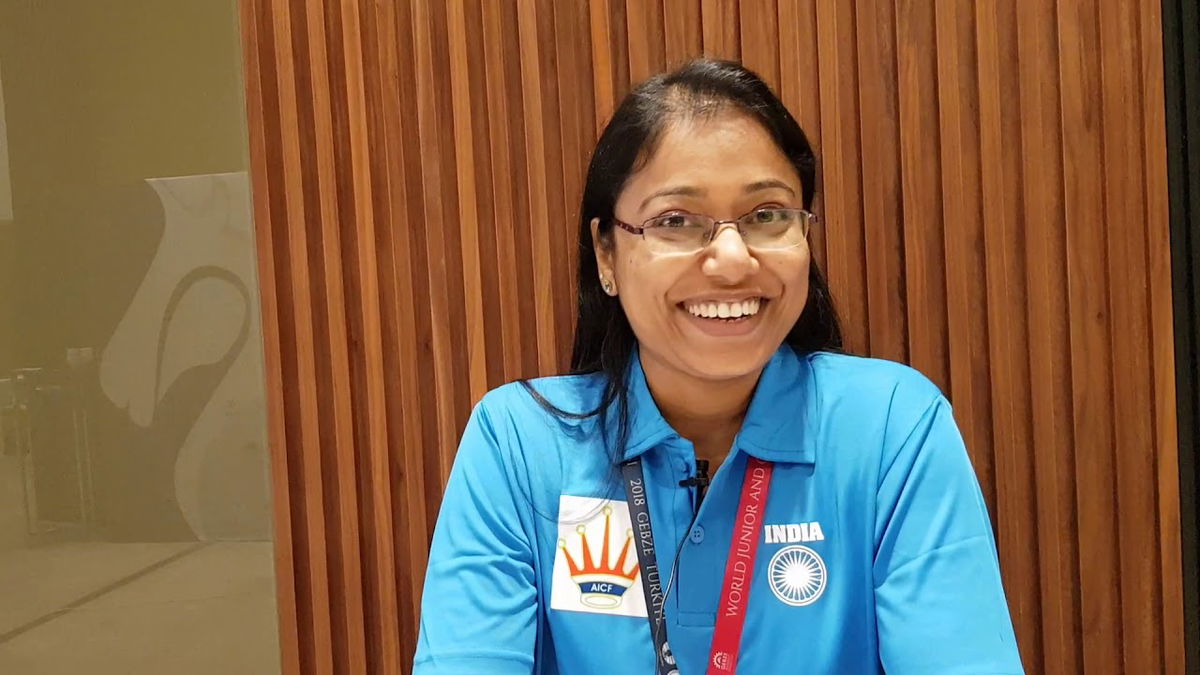
If you have missed part I - you can check it out here: https://chessbase.in/news/Interview-with-Aarthie-Ramaswamy
Interview with Aarthie Ramaswamy - Part II
SS: Once you started to back Ramesh, how many years more did he play, because, he also retired from chess at some point.
AR: Yes, he played for around six years. And he also got quite good results. He won the National Challengers twice and even completed his GM title and also won a few international tournaments. So, I think, he did well for that time. For him, basically, he didn’t have much training but he still managed to make the most with whatever he had.
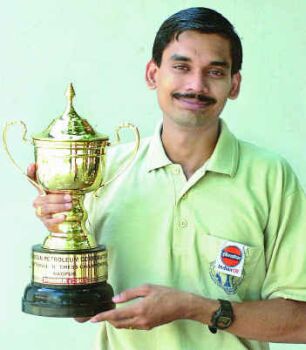
SS: So, when you were supporting Ramesh, what was your role?
AR: I was not training him for sure! So, basically, I would just take care of all the logistics, his travel and everything so that he didn’t need to worry about anything other than chess.
SS: Like a manager?
AR: Yes, like a manager. All he had to do was concentrate on his chess. Once he just named the tournament he wanted to play at, I would make all the arrangements for him and things would roll on.
SS: Today, I don’t think Indian chess would have been what it is had it not been for Chess Gurukul. When did this idea arise and how did you guys start?
AR: I think, Ramesh always had a flair for training. The first time he took the role of a trainer for the Indian team was in 1997. He was only 22 or 23 years old back then. Probably, even working with me would have given him a lot of confidence.
I even remember, once, I was scolded for losing a game for nearly two hours. I even had to miss my lunch because I was being scolded during the lunch hours. He takes his role as a trainer very seriously. Somehow, I feel he has more talent as a trainer than as a player. Of course, he also enjoys playing a lot but, as a trainer, he could completely understand the player and his or her thinking. He is also very good at psychology. So he would help out in that aspect as well.
At the time, there was no trainer at all in India. I mean, there wasn’t a complete setup. So, they were in bits and pieces and we also had these foreign trainers coming and training us. Even I was a part of a few training camps by Vladimirov, Sherbakov, etc. We had quite a few Grandmaster camps. I have, myself, attended five or six such camps.
Apart from these, however, we never had an Indian trainer. I somehow felt that there was a gap between trainers from foreign countries and Indians because foreigners don’t understand some parts of our culture, how we think and things like that. In this respect, I think Ramesh had an edge when he started training.
At one point, when we went to the National Challengers (Open), the top 30 boards were Ramesh’s students (laughs). It was a nice feeling and we thought we should pursue it in a full-fledged way. He thought he wouldn’t be able to manage this with a full-time office job at IOC. So he decided to quit his job. This was back in 2008 or 2009, so this is the 10th year for Chess Gurukul.
SS: Actually 10 years isn’t a very long time. But the amount of work that has been done is tremendous. Can you tell us what the journey was like? We know you’ve assumed the roles of both a manager and a trainer at the academy.
AR: I’ve always been a substitute trainer at Chess Gurukul; I was never a full-time trainer. If a coach was on leave or unavailable, I would pitch in and do the training. But I always played my part in managing the syllabus that is being taught to the children, especially at the lower levels. I think this is important because if the basics are not strong, we feel that it’s very difficult for a good trainer to shape the player. That was my role as far as training was concerned.
But then, my main role was managing things, setting up Gurukul, liaising with parents, scheduling classes for Ramesh and other trainers, etc. This was my major work and even today it’s the same.
SS: So it’s like you take care of the students from the point they start out in chess to the point where they reach a good rating.
AR: Yes, so once they reach Ramesh’s group, he takes care of the chess part and I take care of their tournaments. This mostly includes picking and scheduling tournaments for them. Most of the parents need advice on this and that’s where I help them.
SS: That blends well, doesn’t it – Ramesh helping with chess and you with the other things? But well, how stressful is it?
AR: We were working too much in the first five years. I think you know it as well, how it goes with establishing a company.
SS: Yes, I do. Your health must have also suffered, maybe.
AR: Well, not much. Perhaps, because we were younger at the time, we were able to work a lot more. Every startup requires a lot of work in the beginning. In the first five years, there were times when we had to take turns and travel because we had our daughter to take care of and one of us was required to be at home. Because of this, we weren’t able to meet each other at six or seven months at a stretch, at times. It was a tough time but like Ramesh says, everything passes away.
SS: And you did create something of great value.
AR: Yes, we are happy that we were able to give back something to chess in India. Now, we are also trying to venture into many other aspects as well.
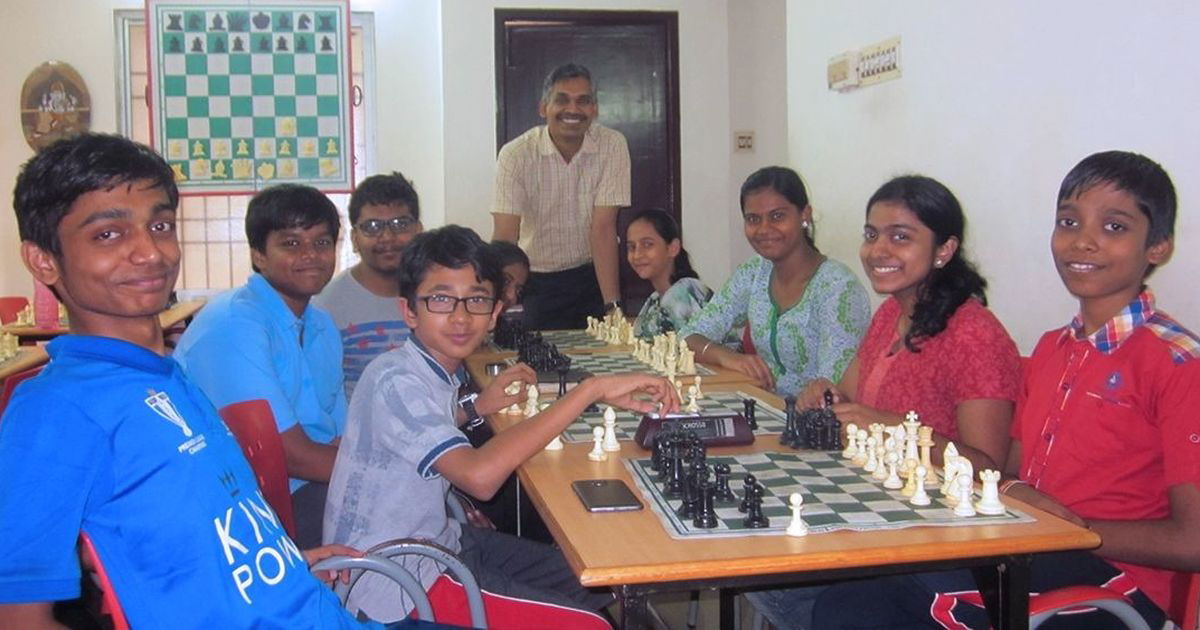
SS: Can you elaborate on this?
AR: There is the online training module that we are working on. Ramesh does a lot of online videos, lessons, webinars etc. Since technology is taking over, we are also trying to experiment with new things. Ramesh has also written a new book and he will probably be writing more. He also got to commentate during the Anand-Carlsen World Championship match in 2013. That was a nice exposure for us as well.
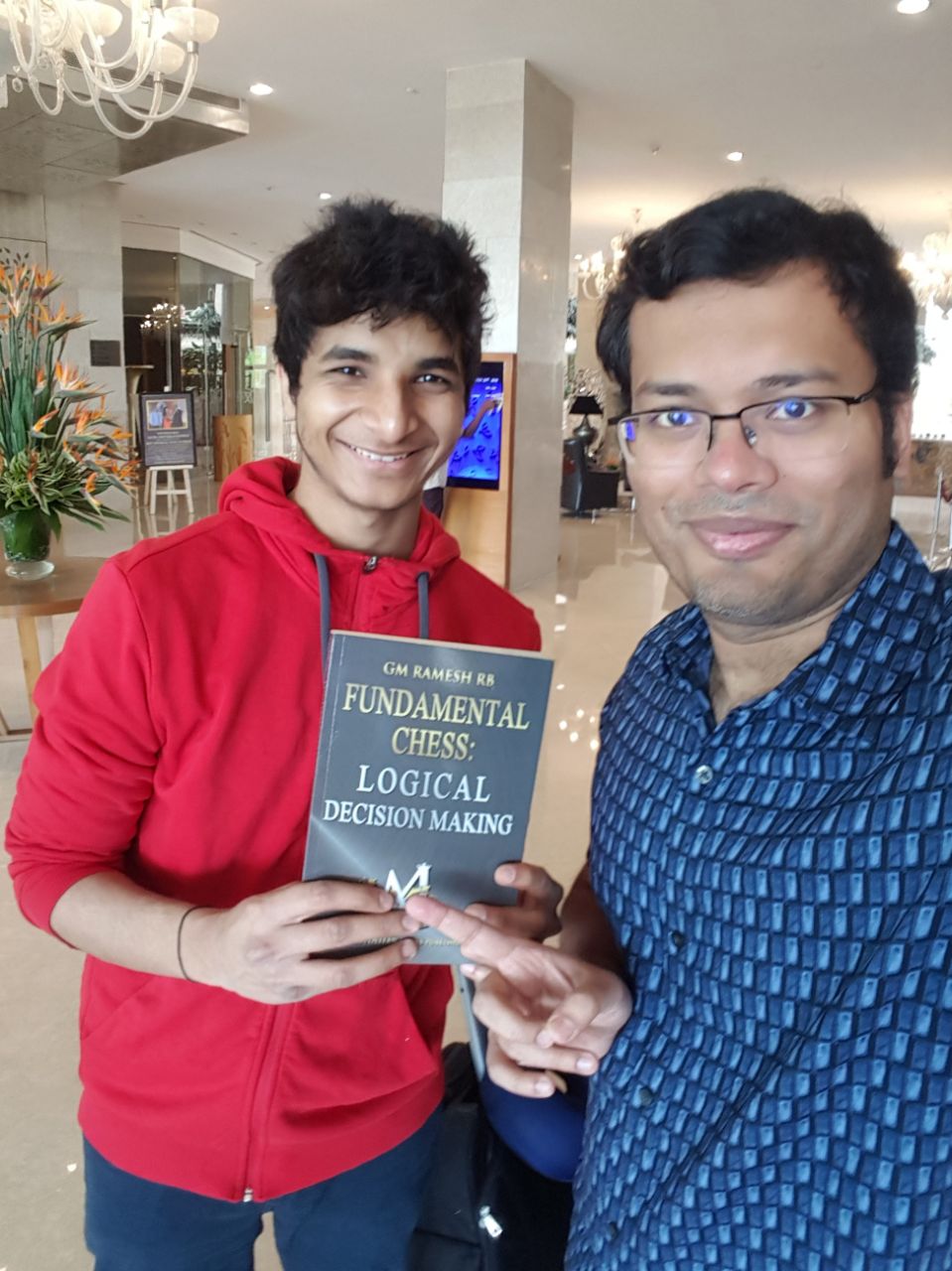
SS: Yes, he has made a lot of videos with Nurtr and we have also been told by several people that they have benefitted a lot from Ramesh’s book, ‘Logical decision making’. So, do you think things are moving more in the direction of books and online or do you think one to one coaching is still the preferred mode?
AR: We still believe in maintaining a small group of students whom Ramesh can mentor – probably, 15 to 20 in a year. We don’t take more because we don’t want the quality to deteriorate. Also, Ramesh has always liked working with children. I think that’s his main passion.
About books, that’s his new found passion. I think he will write more. He is in the process as well. And online videos also came along the way on their own accord. Nurtr just approached Ramesh for a full online video course and since it had always been Ramesh’s dream to do something like this, it all fell in place. Once we started working on it, we realized it was a lot of work.
SS: Yes, forty hours of video content is not a joke.
AR: Yes, and it took a lot of editing and material to be given… it’s a whole year of hard work of Ramesh. I think it’s a good venture because we get a lot of emails and calls from people who want to train with Ramesh but it’s not always possible to train those many people. But Nurtr has made this platform that has made Ramesh at accessible to everyone. His methods, his ways of thinking, his training ideas are now made available to everyone. I think this sharing of knowledge is a very good thing.
SS: And in a way, your task has become easier.
AR: Yeah (laughs).
Check out ChessBase + Nurtr combos here
SS: And can you tell us a bit about Praggnanandhaa. He is one of those players who have caught the fantasy of the chess world. But you must have seen him when he was a mere beginner. What was it that was so special about him in your opinion?
AR: I think he was rated 1850 or 1900 when he began training with Ramesh. This was about three or four years ago. I was always fascinated by the composure of this kid. I mean, he was just 8. You cannot imagine a kid sitting in a place for six hours at that age to train. I think this is what sets him apart from other children. Not to mention, he is extremely talented.
Ramesh used to tell me that he has seen a few kids from the time they were 12 or 13, and Praggnanadhaa has the same attributes as Harikrishna when he was young. Just like Hari, Prag also likes to solve puzzles blindfolded. If you give him a puzzle, he might go to the washroom and when he comes back he would give you the answer. This is very similar to the way Harikrishna was when he was young.
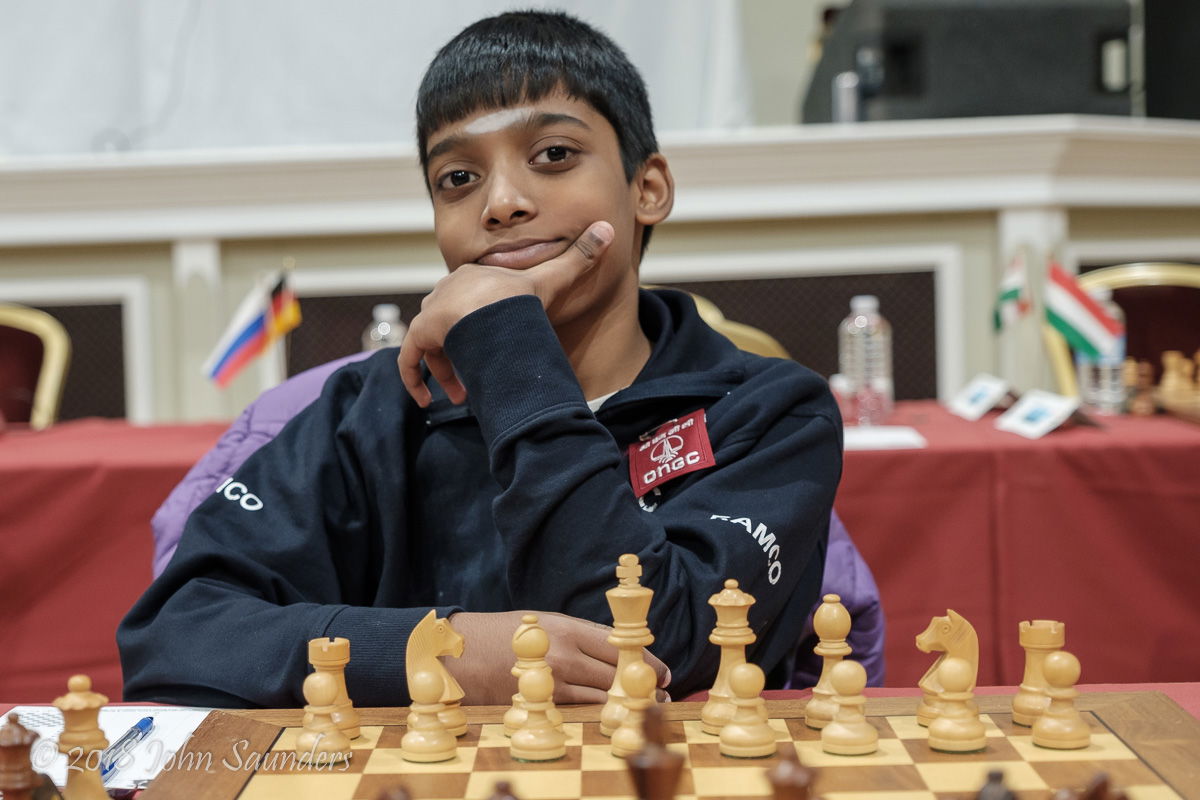
Also, Praggnanandhaa’s entire family is dedicated to chess. Now all he needs are the opportunities.
SS: You’ve also seen Aravindh and Karthikeyan. So, what do you think are the essential qualities which a student needs to be successful as a chess player?
AR: As a coach, I think the student just needs to listen to the coach. That’s the first quality.
SS: But for that, there needs to be a good coach.
AR: Yes. But if the coach is good and if you accept your coach and do whatever your coach says, you can always succeed. You need complete faith. After a level, you can probably rethink. Maybe two or three years down the lane, you can rethink and assess where you are. I think all these children had a lot of faith in Ramesh and, of course, they were also naturally talented kids. I think it’s not only the student or the coach. I think it’s a combination of both, and the chemistry between the coach and the student – that’s more important.
SS: And do you think that the mindset you had when you were a young and talented player is different from the players of today’s times?
AR: I think the basic qualities would never change. Hard work, determination, the urge to win, and all that will always remain the main ingredients. Probably, the strategies of the game will. In those times, we used to see off-beat openings; then, there was a time when everyone played the main lines; and now again, the trend is tipping towards the Nf3 and b3 stuff. I think this keeps changing but the basic qualities of a champion remain the same.
SS: Do you have any advice for the parents? I am asking because I think adherence to certain rules by parents could benefit their child’s chess progress.
AR: Yes, actually you are right. Dealing with parents is one of the main hassles for coaches. Luckily, most of the parents of our students understand how chess is and how they have to go about it. Also, even I am a parent. My daughter started playing a couple of years ago. She is rated about 1750.
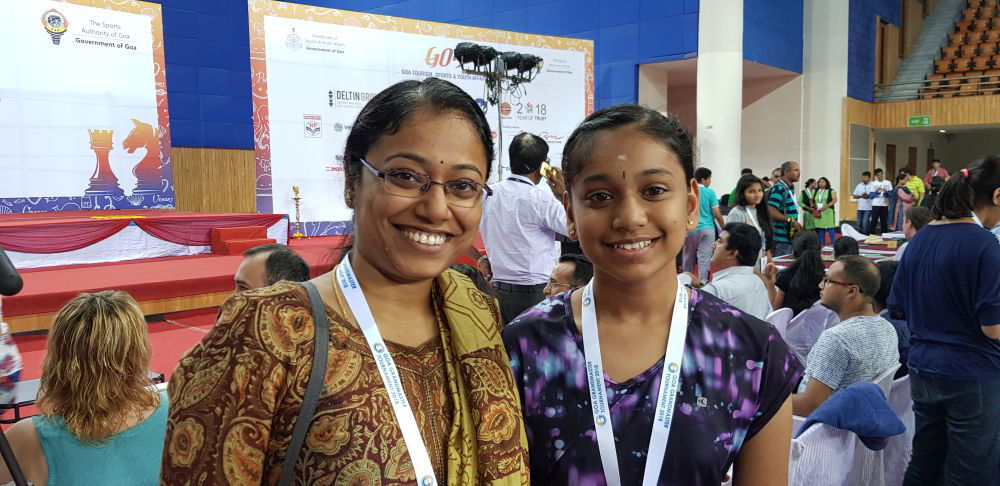
I have learnt a lot after she started playing as to what we need to do as a parent. I am not a chess player with her. I am just a mother. I think the best approach a parent should take is to give the child full freedom by allowing him to make mistakes and learn. That is very important. If you prevent a child from falling down once or twice, but when it does fall down, it’s going to hurt very badly. So, the initial falling down and falling up should happen naturally. We need to give space to children to make mistakes and learn by themselves. Most parents are so protective of their children that they don’t want their kids to make mistakes at all. But that’s not the natural way.
SS: How do you think more institutes like Chess Gurukul can come up in India?
AR: There are a few more institutions like Chess Gurukul in India. Some other Grandmasters have their centres. I think, now, a lot of Grandmasters are taking up training. So hopefully, we will see more of such institutes.
But setting up an institute is very tough. I think one-on-one training is easier that way. So, many of the Grandmasters are going for one-on-one training rather than choosing an organizational setup. And since we already have a lot of Indian Grandmasters in training, I think, it’s a good sign for Indian chess.
SS: Where do you see Indian chess in the next few years?
AR: I think everybody would see it soaring high; it’s not just me. We have a lot of talent, a lot of coaches and even a lot of resources now. Today we have, I think, eight or something international tournaments in India, which is very good. In those days, we just had the one Goodricke Championship. And to even participate there was a challenge for players. They had made their cut off very high. So, I think, children have lots of opportunities now.
SS: Where do you see yourself in the next few years? Would you still continue with your current role?
AR: Yeah, I think I would like to do what I am doing currently for the next five or ten year and then see if a change is needed.
SS: Now, a question on the lighter note, what do you think are the advantages and disadvantages of marrying a chess player?
AR: I think Amruta will be able to help me on this! (Laughs!) There are always two sides to a coin. Once, someone told me he didn’t want to drive because his wife was sitting next to him and she knew how to drive. So, she would keep telling him what or what not to do all the time. Something similar happens when you’re playing a tournament. When you come back home, it’s always chess.
But then there is also a better side to it. It’s a nice way of sharing and both of us can what we both do and what we both enjoy doing. But it is always chess. Our whole life is completely about chess.
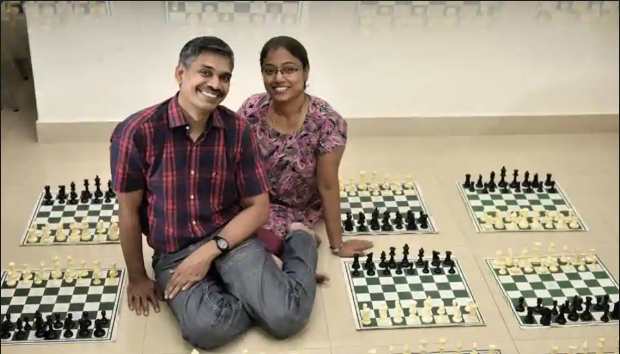
SS: Do you get saturated because of this?
AR: Not much, especially after we’ve had kids, it’s really not much. The kids have their own things to do and we get to engross in other activities as well because of this. In the first thirty years of our lives, it was all about chess but now we are slowly diverting to other things as well.
I don’t know how it will be to marry a non-chess player. I just can’t imagine that. Whatever I do, the other person won’t understand. But for me, I married a chess player and I think it was the right decision.
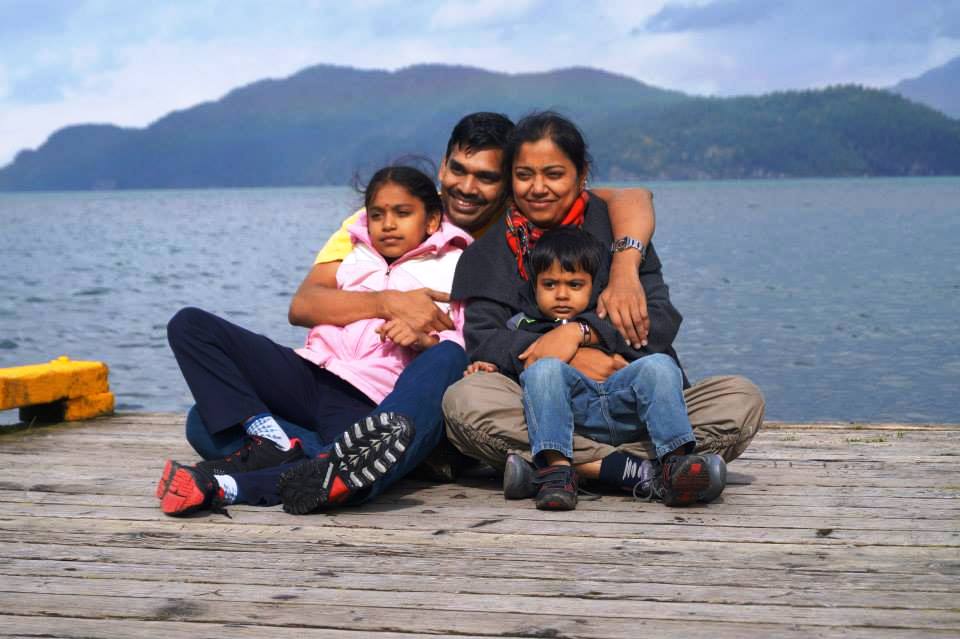
SS: You’ve had a tremendous life so far, playing the roles of a chess player, a wife and supporter for Ramesh and now, you’re giving a big boost to Indian chess by managing a lot of talents. We thank you so much for all the things you have done for Indian chess and for this interview.
AR: Thank you, it was a pleasure talking to you as well. I and Ramesh both feel that whatever we are today is because of chess. So, we always like to give back to the society and, I think, this is our little contribution to our country.
Transcription by Aditya Pai

